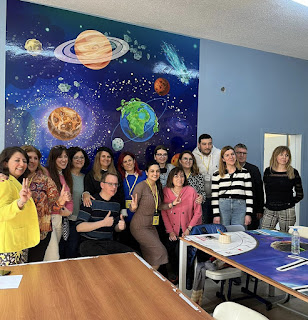Skip to main content
Home

"Quelques Voyages extraordinaries from Jules Verne to STEM/QUEST"
KA220-SCH - Cooperation partnerships in school education
In the partnership we try to use something innovative, namely the combination of literature elements with STEM activities, more precisely to use the novels of J. Verne to create the framework for carrying out STEM activities, to keep the students actively involved in the learning process and to help them think critically and learning by doing.In this way, students become little explorers, learning to face all the challenges that arise in their small research experience. In addition, as methods we will use the process Edukata and Flipped classroom scenario, being some of the most popular trends in education.In recent years, many studies have highlighted an alarming decline in young people’s interest for STEM (science, technology, engineering and math) subjects. On the other hand, the result of PISA and TIMMS tests show us our current education and tight curricula does not work in way we want. Therefore, we must consider how science education can meet young people's needs and how it can be meaningful and joyful for students. So the big challenge is: how we determine our students to be attracted to the arid information of the STEM domain and to learn with pleasure in science, technology, mathematics, engineering.By mutual agreement, the project partners chose 6 novels of Jules Verne, who is the best known author of children's literature in the world to make a „voyages extraordinaires” to enter the fascinating world of scientific adventures. By reading Verne's books students will acquire scientific, historical, geographical knowledge because Jules Verne holds his readers true lessons in geography and history, physics, chemistry, mathematics, engineering. From its appealing explanations, readers learn the mysteries of aeronautics and navigation, robotics and modern technology. The project e will be used in current activities to produce OER. We will form 6 flipped classroom, which is a type of blended learning in which students are introduced to the content at home and practice working through it at school. We believe that the project should be funded because doing in such a big partnership will give all partners - teachers and students - a better chance to build on each other's STEM experience.In addition, we offer students from disadvantaged backgrounds the chance to have a unique experience in which they are the main actors, small explorers, which will encourage them to gladly participate in school activities, thus avoiding early school leaving.
Popular posts from this blog

Comments
Post a Comment